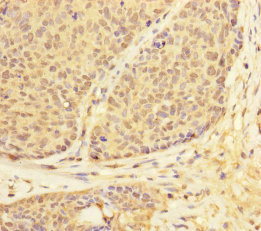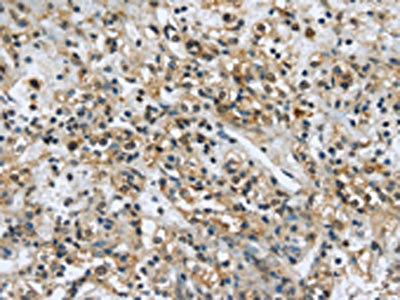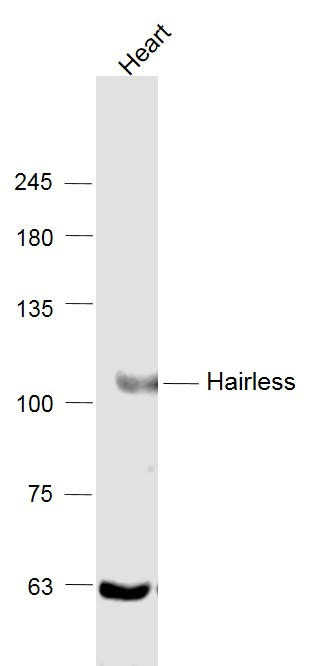
Western blot All lanes: USP28 antibody at 3.08microg/ml + Hela whole cell lysate Secondary Goat polyclonal to rabbit IgG at 1/10000 dilution Predicted band size: 123, 120, 67 kDa Observed band size: 123 kDa
USP28 Antibody
CSB-PA850427ESR2HU
ApplicationsWestern Blot, ELISA, ImmunoHistoChemistry
Product group Antibodies
TargetUSP28
Overview
- SupplierCusabio
- Product NameUSP28 Antibody
- Delivery Days Customer20
- ApplicationsWestern Blot, ELISA, ImmunoHistoChemistry
- CertificationResearch Use Only
- ClonalityPolyclonal
- ConjugateUnconjugated
- Gene ID57646
- Target nameUSP28
- Target descriptionubiquitin specific peptidase 28
- Target synonymsdeubiquitinating enzyme 28; ubiquitin carboxyl-terminal hydrolase 28; ubiquitin carboxyl-terminal hydrolase 28 variant 1; ubiquitin thioesterase 28; ubiquitin thiolesterase 28; ubiquitin-specific-processing protease 28
- HostRabbit
- IsotypeIgG
- Protein IDQ96RU2
- Protein NameUbiquitin carboxyl-terminal hydrolase 28
- Scientific DescriptionDeubiquitinase involved in DNA damage response checkpoint and MYC proto-oncogene stability. Involved in DNA damage induced apoptosis by specifically deubiquitinating proteins of the DNA damage pathway such as CLSPN. Also involved in G2 DNA damage checkpoint, by deubiquitinating CLSPN, and preventing its degradation by the anaphase promoting complex/cyclosome (APC/C). In contrast, it does not deubiquitinate PLK1. Specifically deubiquitinates MYC in the nucleoplasm, leading to prevent MYC degradation by the proteasome: acts by specifically interacting with isoform 1 of FBXW7 (FBW7alpha) in the nucleoplasm and counteracting ubiquitination of MYC by the SCF(FBW7) complex. In contrast, it does not interact with isoform 4 of FBXW7 (FBW7gamma) in the nucleolus, allowing MYC degradation and explaining the selective MYC degradation in the nucleolus. Deubiquitinates ZNF304, hence preventing ZNF304 degradation by the proteasome and leading to the activated KRAS-mediated promoter hypermethylation and transcriptional silencing of tumor suppressor genes (TSGs) in a subset of colorectal cancers (CRC) cells (PubMed:24623306).
- Storage Instruction-20°C or -80°C
- UNSPSC12352203









